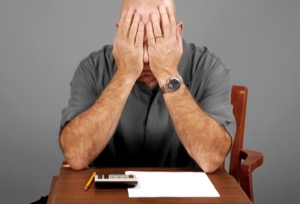Automatic Stay
 Once a bankruptcy is filed, an automatic stay is entered in the case. The automatic stay prohibits creditors from all attempts to collect a debt. This includes lawsuits, garnishments, repossessions, foreclosures, phone calls, letters – any attempt to collect a debt. The automatic stay remains in effect until the end of the bankruptcy when a discharge is entered. The automatic stay is broader than the discharge. Some debt can not be discharged, such as student loans, but it collection for this debt is stayed while the bankruptcy is active.
Once a bankruptcy is filed, an automatic stay is entered in the case. The automatic stay prohibits creditors from all attempts to collect a debt. This includes lawsuits, garnishments, repossessions, foreclosures, phone calls, letters – any attempt to collect a debt. The automatic stay remains in effect until the end of the bankruptcy when a discharge is entered. The automatic stay is broader than the discharge. Some debt can not be discharged, such as student loans, but it collection for this debt is stayed while the bankruptcy is active.
A creditor can ask the court for permission to modify the automatic stay. In a Chapter 7, a creditor can modify the automatic stay on a secured debt, such as a car loan or a mortgage, if the debtor is behind on payments. In Chapter 7, a debtor also has to file a “statement of intent” stating whether they intend to keep property they are paying on, such as a car. If they do not file this statement of intent within 30 days of filing their case, the stay is automatically terminated. If someone files more than one bankruptcy in a year, they have to ask the court permission to keep the automatic stay active within 30 days in the next case. If they file more than two within a year, the automatic stay does not go into effect until the court imposes the automatic stay after the debtor files a motion.
In a Chapter 13, the creditor can ask for court permission to modify the automatic stay if the debtor is not making payments to the trustee. The debtor also has to keep the property fully insured.
If a debtor files a Chapter 13 within four years of a Chapter 7, the debtor is not eligible for a discharge. However, the automatic stay is imposed. Therefore, a debtor could file a Chapter 7 then file a Chapter 13 within four years to stop a foreclosure providing that the mortgage payments be made in the Chapter 13 plan. The debtor does not want to wipe out the mortgage payments. He or she just wants the foreclosure to stop, which is what the automatic stay does while the bankruptcy is active.
An automatic stay in a Chapter 7 or 13 will reinstate a driver’s license that has been suspended for damages caused by an uninsured accident. If a driver’s license is suspended for tickets, only a Chapter 13 automatic stay will reinstate the license in Washington. Note that damages for personal injury or death caused by driving under the influence are not dischargeable and the automatic stay does not stop the continuation of criminal proceedings.
 Washington State Attorneys Home
Washington State Attorneys Home















































